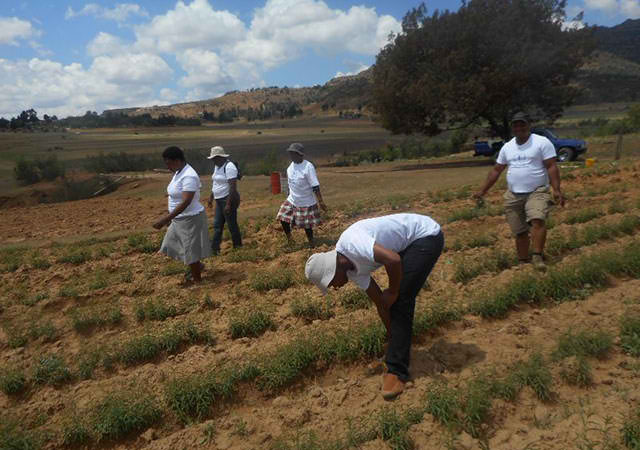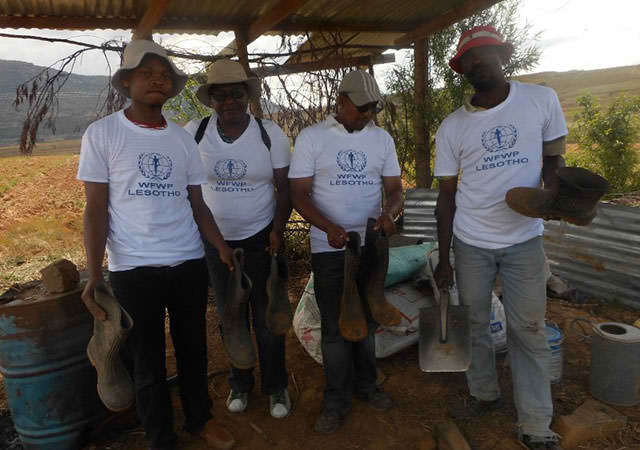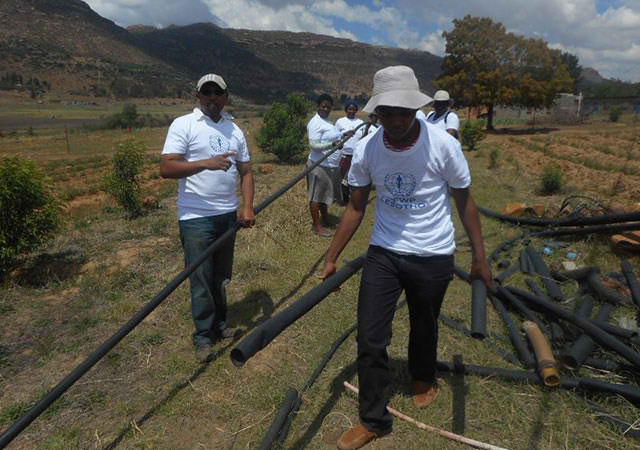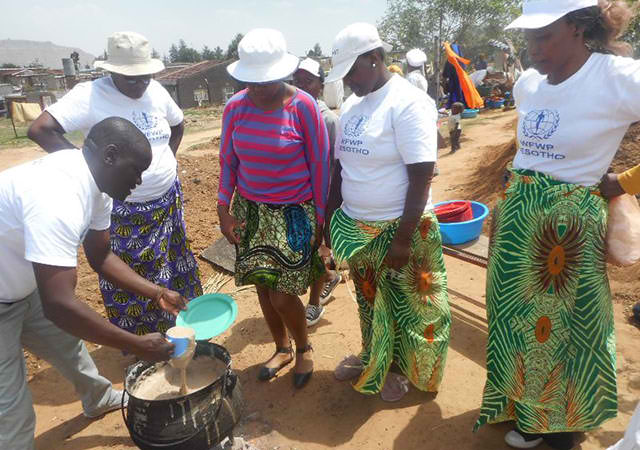Lesotho: Tackling Malnutrition
Lesotho: Tackling Malnutrition
JOSEPHINE FLORENCE
DECEMBER 31, 2016
WFWP Farming Efforts Feeding the Food Insecure
WFWP Lesotho has been tackling the major issue of malnutrition in their small land-landlocked kingdom. The local WFWP chapter was donated two (2) pieces of farmland by the area chief to grow and offer nutritious food for those food insecure in the area. One of the pieces of land is two (2) hectares, where WFWP has planted peach seeds. Once the seeds have budded in four months' time, they will be a great source of income for the region.
This program was started in response to the UN Sustainable Development Goal of ending hunger, achieving food security and improved nutrition and promoting sustainable agriculture. WFWP Lesotho made it their main project to feed impoverished, malnourished children.
When these peach plants or trees are fully grown, WFWP will harvest the fruit to make juice and dried peaches, along with other useful and tasty products. The chief donated additional land to WFWP, where they just finished planting potatoes and beans. They are hoping to also plant cassava, which can also be used in their food security programs. WFWP Lesotho is expanding their farming efforts beyond just plants to offer the widest variety of nutrition and most sustainable farming initiative possible. They are planning on keeping poultry and starting a piggery.
Because of WFWP Lesotho's successful efforts, a government clinic has reached out to them to provide food twice a month to the malnourished children at the clinic. WFWP Lesotho is exploring how they can make this possible, such as adding Pro Nutro products into the porridge for a more substantial meal.
WFWP Lesotho is highly active in creating a substantial social impact in their local community.
Lesotho is a sovereign kingdom entirely surrounded by its neighbor South Africa. The country is experiencing a major food crisis as a result of an El-Niño induced drought. It is home to 2 million inhabitants, 700,000 of whom are food insecure. Around forty percent of rural families spend half their income on food. (World Food Programme)




